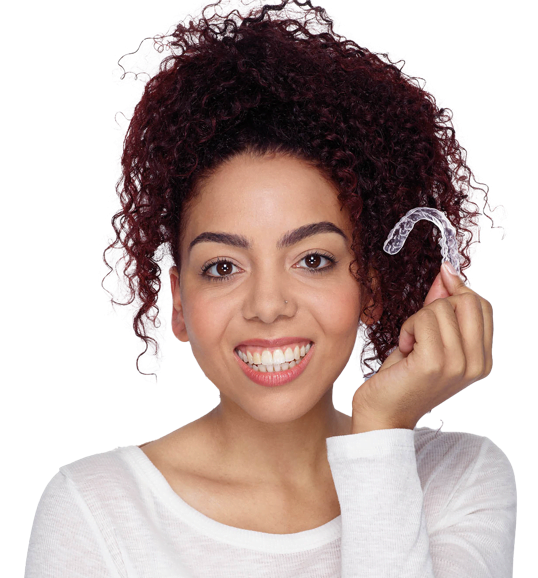Causes of yellow teeth

Yellow teeth aren’t necessarily unhealthy teeth, and smiles naturally come in a myriad of different shades. Unfortunately, though, this fact does little to boost the appeal of canary-coloured teeth and there’s a huge demand for cosmetic dental treatments that whiten and brighten our smiles.
White teeth have long been associated with youth and beauty. A poll by VisionCritical even indicated that white teeth are seen as an indication of wealth – and those with whiter teeth were believed to earn £10,000 more than they actually did.
So what causes yellow teeth? And crucially, what can be done about them?
The causes of yellow teeth
We’ve looked at the top causes of yellow teeth, as well as the treatments that will help to restore the shine to your smile.
Genetics
Your teeth are coated in a hard substance called enamel, which comes in a variety of colours and can be yellow-tinged, or even blue or grey. The colour of your enamel is not a reflection of how well you look after your teeth; like your natural hair or skin colour it’s down to genetics. There are also some genetic conditions such as dentinogenesis imperfecta, which can cause more dramatic discolouration.
Age
Unfortunately, teeth have a tendency to become more yellow as we age. This is thanks to our tooth enamel thinning, which allows the yellow dentine below to show through. Enamel naturally becomes thinner with age, but acidic foods and drinks can erode enamel and help to speed up the process.
Diet
Your diet can have a big impact on your teeth and as we’ve already discovered acidic snacks can contribute to yellowing teeth. You should also be wary of dark coloured foods and drinks, which can directly stain teeth. Top offenders include red wine, coffee, berries and curry, which are all high in chromogens.
Smoking
One of the many disadvantages of smoking is that it can quickly stain your teeth yellow and eventually brown. This is a result of the tar and nicotine that is deposited on your teeth. While smoke-stained teeth can be whitened, the results won’t last for long if you don’t ditch the cigarettes.
Medication
There are a number of medicines and antibiotics that can discolour teeth. The antibiotic tetracycline can turn teeth yellow if it’s taken by children while their teeth are developing; while Minocycline, which is a derivative of tetracycline, can stain adult teeth. Some of the mouthwashes that are designed to treat gingivitis can also cause stains thanks to an ingredient called chlorhexidine gluconate.
Tartar
Plaque is a sticky film of bacteria that naturally builds up on our teeth. Normally it’s brushed away before it can do any harm. However, if it’s left it can harden into yellow-coloured tartar (pictured), which will need to be removed by your dentist or hygienist. Braces can make it more difficult to brush away plaque, so orthodontic patients will need to spend a little extra time brushing carefully around their brackets.

Dead tooth
Teeth usually ‘die’ as a result of decay or an accident. In both instances the blood supply to your tooth is cut off, causing the pulp (your tooth’s living tissue) to give up the ghost. Adult teeth can actually carry on without this pulp, but your dentist will need to carry out root canal treatment to remove any decayed tissue. Dead teeth will usually discolour as a result of dying blood cells (a bit like a bruise). This discolouration can be yellow, grey or even black.
Solutions for yellow teeth
Now that we know what causes yellow teeth, here are some of the solutions.
Prevention
Dentists love prevention, and luckily there are a lot of healthy habits that you can adopt to prevent yellow teeth:
- Try drinking acidic or dark-coloured beverages through a straw to avoid direct contact with your teeth.
- If you’re a smoker – quit!
- Cut back on foods that are more likely to stain your teeth.
- Protect your enamel by avoiding highly acidic food and drinks.
- Brush your teeth twice a day for two minutes and clean in between your teeth daily.
- See your dentist and hygienist for regular appointments.
Teeth whitening
Teeth whitening, provided it’s provided by a dental professional, is a safe and effective solution to yellow teeth. However, while whitening achieves great results for the majority of patients, some teeth can be resistant to whitening treatments. Typically, yellow-toned teeth respond better to whitening than grey/blue-toned teeth. Restorations such as crowns, veneers and fillings won’t change colour, and may need to be replaced after a course of teeth whitening.
Internal bleaching
Teeth that are discoloured as a result of an infection won’t respond to traditional teeth whitening, which only works to whiten the outer enamel. In these cases, internal (or non-vital) bleaching might be an option. This involves whitening the entire tooth from the inside out following root canal treatment. It can be difficult to exactly match the colour of your other teeth but internal bleaching can often provide a good alternative to more invasive solutions such as veneers.
For more advice on teeth whitening, contact our friendly team.



